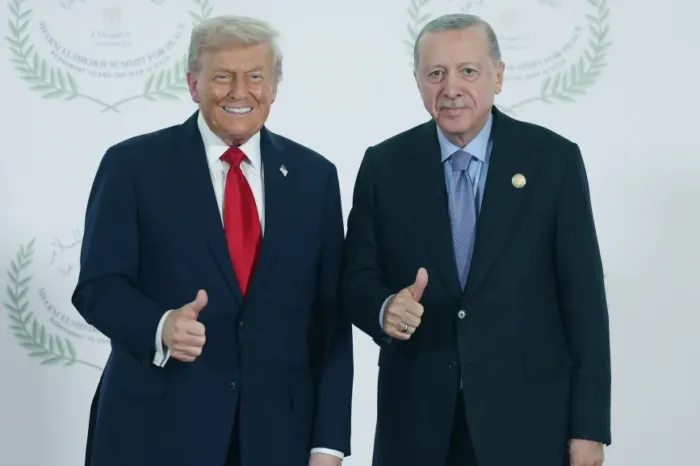Swing Votes Swing Back: One Winner and Many Losers
The day before the election in this column I wrote that there are things we know about the elections, and it was another Justice and Development Party (AK Party) win. The results of the elections show that the AK Party received another election victory. The most interesting part of the pre-election debates about these elections was although everybody could predict that the AK Party’s vote share would be more than 40 percent, the same observers were expecting an electoral defeat at the same time. The worst case scenario for the AK Party in this election was not to get a parliamentary majority, but even in such a case, it would be impossible for other parties to form a coalition government without the AK Party.
The election results show that there is one winner and every other party is disappointed with the results. The AK Party increased its votes back up to 49 percent and reached the level of support it had in 2011. The Republican People’s Party (CHP) could not increase its votes much, and the Nationalist Movement Party (MHP) and Peoples’ Democratic Party (HDP), which were both considered the victors of the June 7 elections, faced serious defeats. They lost the chance and opportunity that they had from the previous elections.
In the aftermath of the June 7 elections, post-election surveys showed that if there was an election the day after, support for the AK Party would rise to 43 percent to 44 percent. The reason was the results of the June elections were not expected by anyone and they surprised everyone, including the political parties. The IPSOS survey from June 8 demonstrated that the reaction votes that swung from the AK Party most probably returned to the AK Party. In those days the results were interpreted as the voters wanting to give a message to the AK Party, but the messengers were not happy with the tone of this message. There were two critical groups of voters that brought the AK Party under the single-party government threshold in the last elections – nationalist votes and Kurdish votes. In the last five months since the June elections the most significant debate was about the voting behavior of these two groups.
We saw in post-election surveys that some of those who voted for the MHP on June 7 said they would vote for AK Party this time around. These voters preferred stability and did not expect the emergence of a situation that would bring the coalition process into play. Because of that, in the immediate aftermath of the elections, the swing votes swung back to the AK Party. In this five-month period, the MHP’s positions during coalition negotiations were not regarded favorably by voters. The MHP’s uncompromising attitude, especially during the coalition negotiation with the AK Party, and during the election of the Parliament speaker with the opposition parties generated a significant reaction from voters. The MHP failed to control this situation and had a poor communication strategy to explain its position in these circumstances. As many expected, these results increased the vote swing from the MHP to the AK Party, which had already started the night of the June elections.
Secondly, Kurdish voters who voted for the HDP on June 7 were also disappointed with the HDP and the emerging situation in Turkey. The rapid decline in HDP votes had two different reasons. On the one hand, the October events in 2014 demonstrated that the people in the region reacted to any call to the street for politics and mass protest. In the aftermath of these incidents, the HDP leadership faced serious criticism. People in the region reacted very negatively to the HDP after June 7 and its failure to distance itself from violence. The declarations of autonomy of towns in the southeast and subsequent violence also contributed to this situation. On the other hand, the HDP lost most of the votes that the party received in major cities. In the June elections, the party brought up the concept of “Türkiyelileşmek,” claiming that it will not follow any identity politics. Some Turkish voters also voted for the HDP after the emergence of this message. HDP Co-Chair Selahattin Demirtaş also recognized after the elections that they were aware of “gift votes” and would act accordingly. However, the HDP failed to distant itself from the PKK in this period. Especially after the declaration of the cease-fire by the Kurdish Communities Union (KCK) in mid-July, the HDP leadership could not react in accordance with the expectations of its voters. Statements by Demirtaş following the terrorist attacks in Suruç and Ankara also generated major reactions against him.
As a result, the votes that swung to the MHP and HDP in the June elections swung back to the AK Party this time.
This article was first published in the Daily Sabah on October 26, 2015.
























